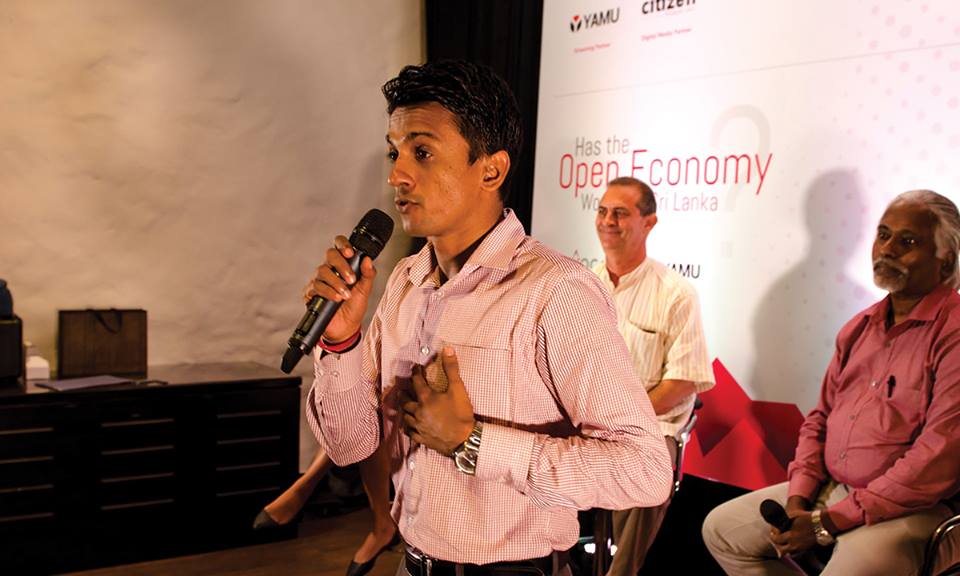


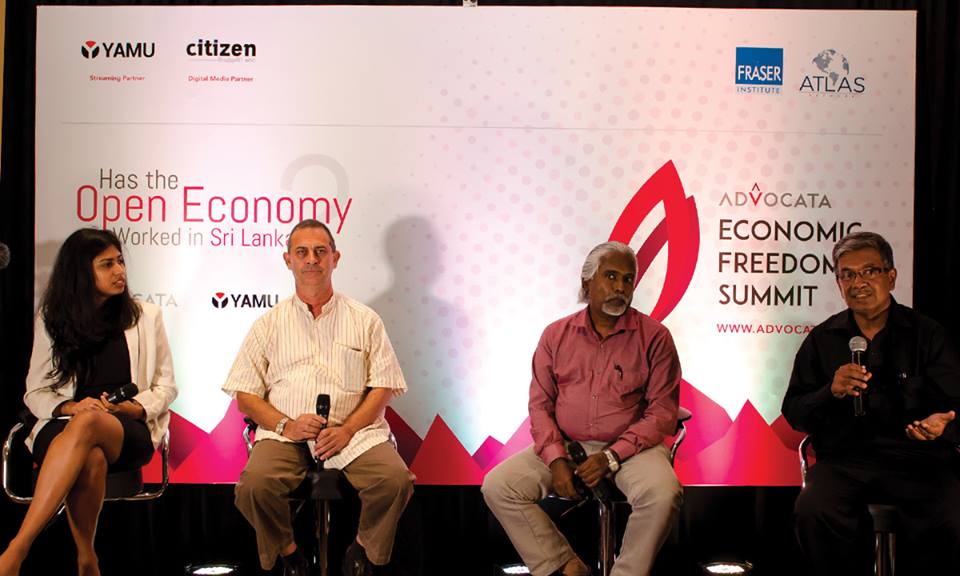

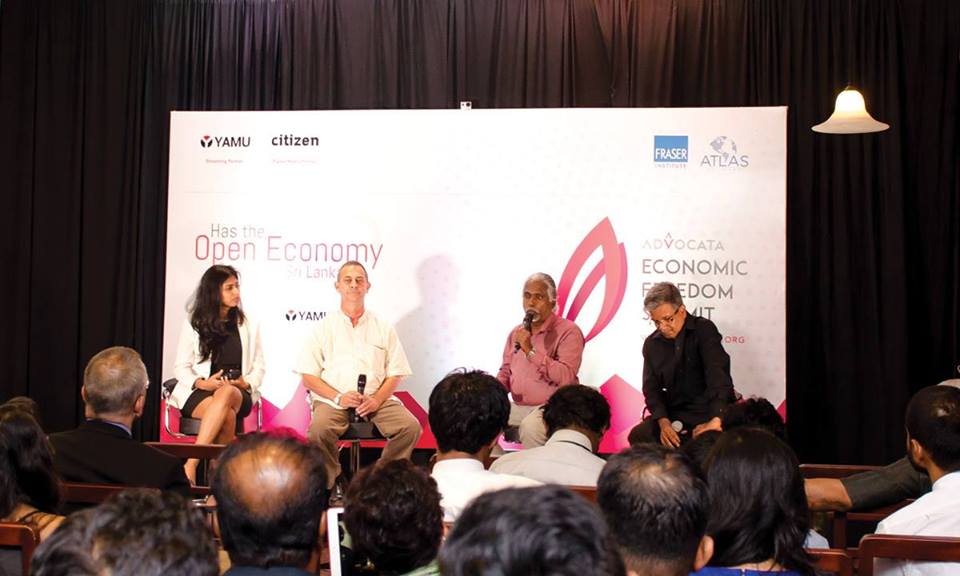
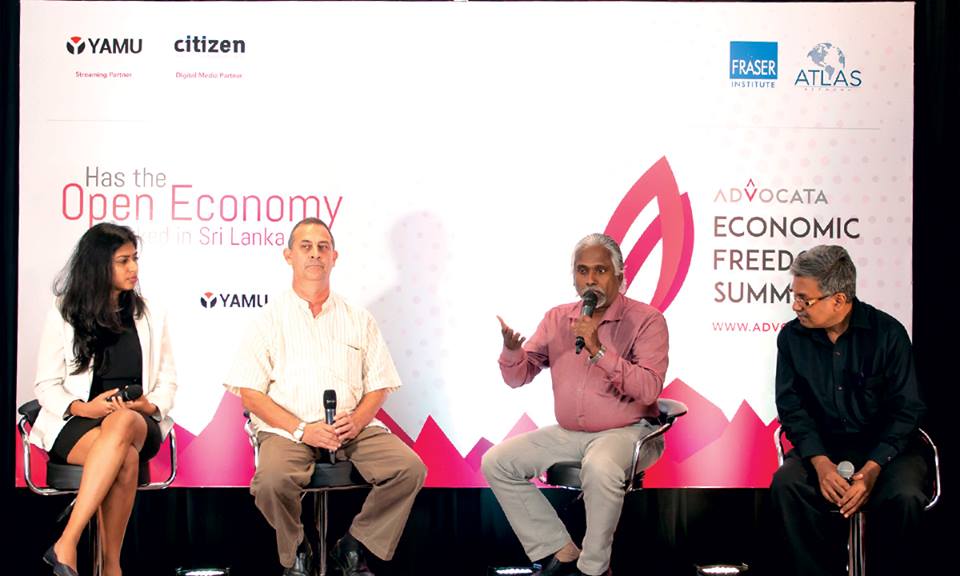
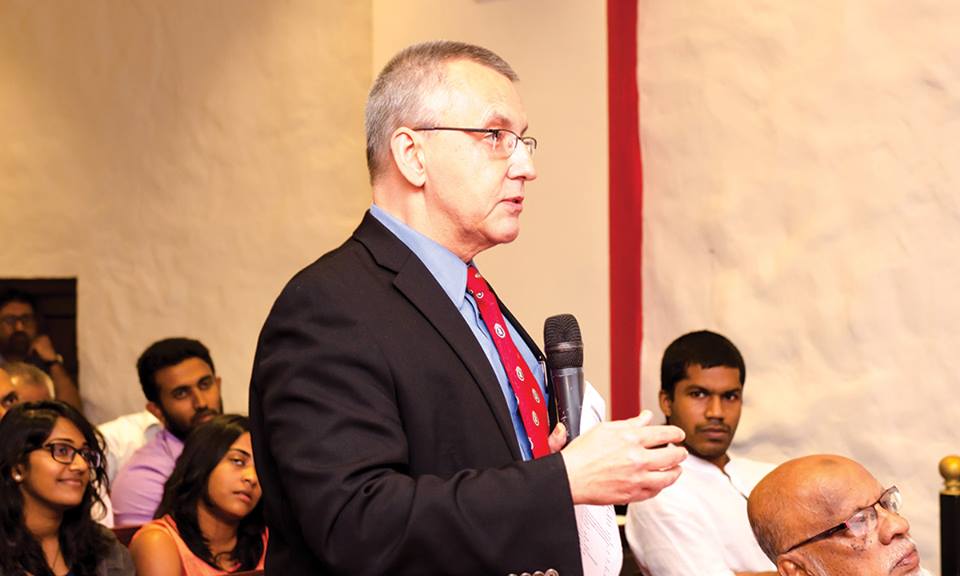
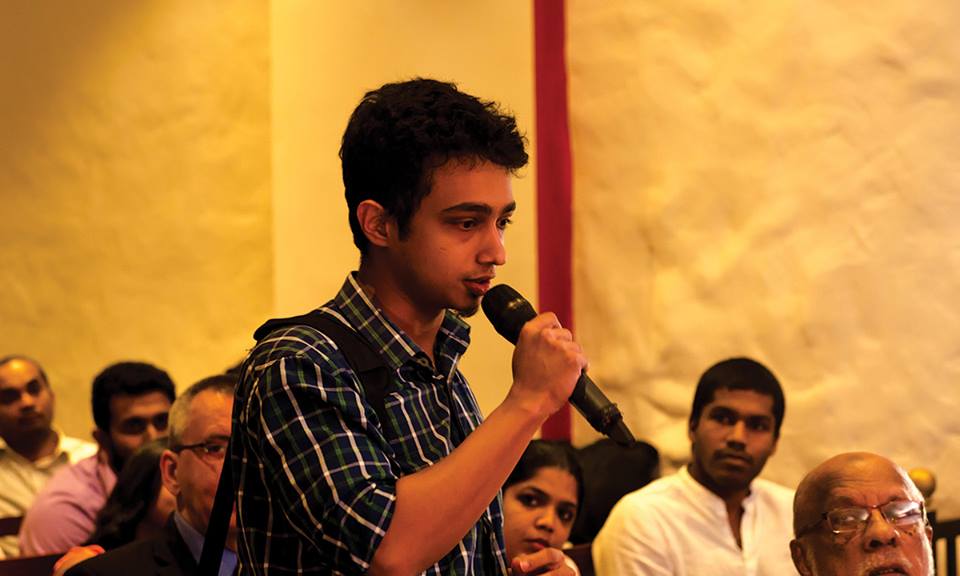
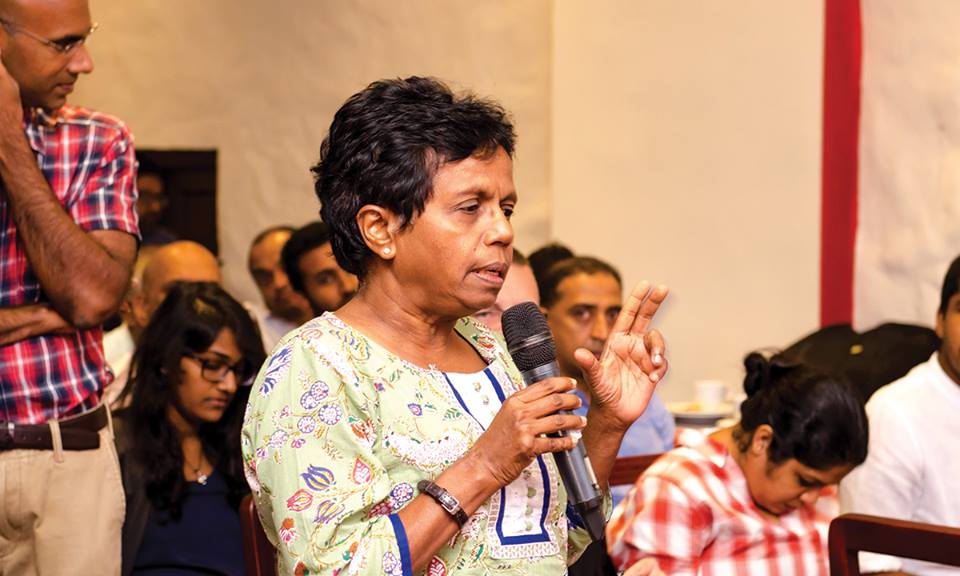
Advocata Economic Freedom Summit kicked off with a panel discussion on “Has the Open Economy worked in Sri Lanka?” It was the historic year of 1977, that the voters used the power of the ballot to remove a government promoting a restrictive state-controlled socialist oriented economy that stifled growth and opportunity.
Political change often is associated with economic change; since 1977, Sri Lanka has gradually opened up its economy- but to what extent has progress been made?
Forty years after the political change Advocata wanted to revisit the debate with representatives from both sides of the debate as the front-runner to the Economic Freedom Summit and policy audit in partnership with Canada’s Fraser Institute and Atlas Network.
The discussion moderated by Ms. Anisha Guruge of Verite Research, had three panelists with varying views
Arguing against the opening up of the economy, Mr. Vinod Moonesinghe, a journalist and political researcher, argued that Sri Lanka inherited a colonial economy from the British, dominated by a mercantilist class who were not interested in investment, a gap that needed to be filled by the state. He argued under the closed economy era of ‘72 the state invested in Plantations and other industries; coincidentally, there was a great deal of innovation associated with state investment in these sectors. By pointing to the the examples of the protectionist policies of East Asia before the countries in the region opened up its economies , especially South Korea and Taiwan, he argued that a closed economy was needed, at least in the short run to provide a platform for Sri Lanka to project itself when the country is ready to adopt a more free trade regime.
Mr Ajith Perakum Jayasinghe, a well-read political observer and blogger disagreed with the notion that Sri Lanka in fact opened up the economy in 1977. He said that only partial reforms were done in ‘78. Alluding to the anti-SAITM protests, Mr Jayasinhe argued if Sri Lanka did really open up there wouldn’t be protests on the street calling for the denial of education freedoms of people. Calling himself a ‘socialist’, Mr Jayasinghe said the best way forward is a liberalized but regulated economy.
On the other hand, Mr. Chanuka Wattegama, believed that the reforms in the post 1977 era has definitely worked although much remains to be done. Establishing comparisons of pre-1977 era and since, he substantiated his stance by showing how freer trade translated into tangible benefits that ordinary citizens can relate to, like greater choice and increased incomes.
The point of conflict was the question of innovation- which economic system facilitates it better?
Whilst admitting that certain East Asian economies has some success under industrial policy and a degree of protectionism, Mr Wattegama vehemently disagreed with the notion that closed economies spurs innovation. “Then North Korea and Cuba would be the most innovative countries” he claimed. Mr Wattegama went on to cite the obvious disparity of quality between the inferior computer printers made in India under a closed market regime,compared to the far superior Epson printers available at the time. As mentioned in his opening and subsequent statements, Mr. Moonesinghe continued to oppose this notion.
The audience questions and the panel made up for a passionate discussion that addressed a key division in the economic policy debate in Sri Lanka.
The event was streamed online by YAMU TV and the video can be accessed through the following and now available on Advocata’s youtube channel.
Dhananath Fernando, the COO of Advocata said that the institution is committed to providing a platform to discuss contemporary issues in an accessible way.

